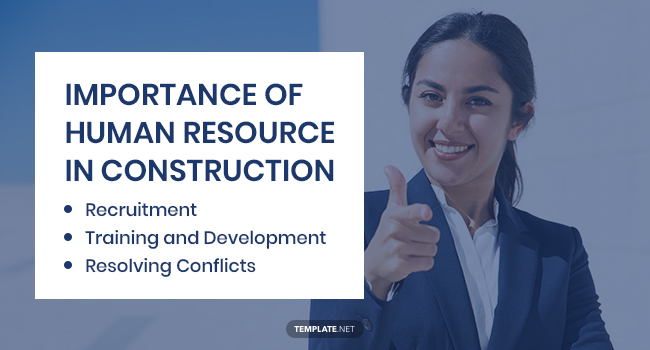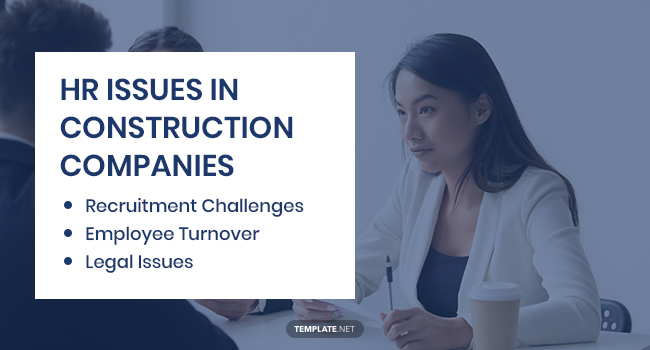Human Resources (HR) Management in Construction Business – Complete Guide
Entrepreneurs who have the intention of starting a construction business would have to make different decisions to ensure success in the construction industry. Besides the business plan and marketing strategies, the owners have to hire the right people to manage the business processes and documents. Like any business in the industrial and commercial industry, construction companies need the professional input and skills of a human resource team. Despite the struggles and challenges of handling a construction business, the HR department comes through with the right policy and compensations for the employees.

Human Resources (HR) Management in Construction Business – Complete Guide
This article will discuss the basic information, challenges, and importance of the human resource department in the construction business. Learn more information about them by reading through this article.
Importance of Human Resource in Construction

The construction human resource or HR department—an integral and crucial part of the business system in an enterprise has three primary roles. One, they handle the recruitment, training, and integration of the employees in the workforce. Second, the team monitors the inflow and outflow of funds, as well as creating budget plans for projects and programs. Third, they formulate and implement policies for the benefit of the business.
As a whole, human resources is one of the fibers that fuel the operations of the enterprise. Through the HR strategic plan, the staff can effectively manage the duties they have to perform daily. In a construction company, the role of the HR department is the same, monitoring the processes and operations of the business while making sure that everyone is safe.
Budget Control
The human resources department in the construction company has some control over the budget plan as they handle the outflow of money for employee salaries, benefits, and compensation. The team gets a chunk from the expense budget for the allowance of the workers. Moreover, HR is also responsible for expense tracking in the building construction budget. The project manager and the HR team work hand in hand to organize everything. When a project needs more money, HR can discuss negotiations and changes in the contract.
Recruitment
From time to time, construction companies need to hire more people, such as engineers, office workers, maintenance inspectors, and supervisors. The HR department takes the responsibility of meeting applicants, run through their qualifications and abilities—and then, after filling up the interview form, accept or reject their applications. When candidates do pass, the recruitment officers present employment offers and write down employee information when hired. From there, HR guides the new hires until they can handle the workload by themselves.
Payroll Management
Like all businesses, a construction company has to keep all records of payroll transactions for tax purposes and any other federal-related uses. The HR department is responsible for anything related to the wages of the employees, may it be about payroll deductions or tax exemptions. They use payroll forms to perform salary deduction authorization to some deficiencies in work. Workers can also get construction expense claim forms from the HR department.
Appraisals, Rewards, and Incentives
One of the HR department’s responsibilities is keeping track of the performances of each employee. When workers are efficient and dependable, they receive incentives and rewards which can come in construction certificates of cash rewards, depending on the policies of the construction company. If one employee deserves appraisals, the HR manager sends an employee appraisal form to heads for approval. Construction companies monitor the performance of the employees within departments and give rewards when the fiscal year ends.
Training and Development
As people always quote, there is still room for growth and improvement. This proclamation is applicable not only for personal growth but also for different kinds of businesses. In a construction business, the HR organizes training and developmental programs to enhance the skills of the employees, especially when it comes to leadership. In some cases, the HR manager invites speakers as their training skills are far more superior. To formalize the activity, the leaders acquire training request forms for the dates and training certificates to give to the employees, especially those people with improvement in their skills and competence.
Performance Improvement
Performance improvement measures the different processes, performance reviews, and outputs of the business. It makes adjustments based on the results of the assessment. For construction companies, performance improvements include training and revisions in the performance management plans. Most people who undergo performance improvement are officers and administrative employees. In another perspective, performance improvement is about knowing methods that will improve the company as a whole.
Resolving Conflicts
It would be wrong to say that conflicts do not exist in any workplace. Truth be told, some construction company employees meet arguments with fellow workers because of differences in views and virtues, or a simple misunderstanding due to communication lapses. When talking is not enough to resolve work-related issues, HR will step in to calm the circumstance. Most problems that reached the HR-level are extreme and can affect the productivity of the team.
Manages Transformation and Changes
Due to different conditions in the construction business, the chances of leadership changes and movements are possible. Mergers of companies or separation of departments can disrupt the business flow. When that happens, HR will make sure that the processes run smoothly. HR will utilize internal transfer forms and transfer permits for some employees that will leave departments. Other times, they use a change user request form for the convenience of workers.
Employee Relations
Construction businesses want to keep the numbers of their employees from suddenly fluctuating into danger zones. With that, construction companies need to maintain a professional relationship with their employees. And by that, there should be proper information dissemination on the rules and regulations of the company. Moreover, HR also secures employee timesheets to determine the punctuality of the workers and disciplinary forms to use in the future. HR has to maintain cordial relations with workers and assure them that they’re in a good workplace.
Health, Safety, and Security
From the security of the workplace to the safety of the staff on-site, HR has different obligations to carry daily. In a construction company, the level of health, protection, and security doubles as the nature of work has more risks. With that, the HR department uses safety management plans. It also does routine reviews using safety inspection checklists to ensure the protection of the employees. In unfortunate circumstances, the workers can send medical claim submission reports. HR also prepares contingency plans beforehand to avoid further problems.
Maintaining Records
Similar to an inventory, a construction company’s HR department compiles the records of all the projects, whether complete or not. Furthermore, it has legal documents about the employees in the construction enterprise. From daily quality reports to contractor reports, the office takes note of these documents. In general, anything that involves statutory legwork and professional information is under the provision of the human resources department.
HR Issues in Construction Companies

Despite all the things that the human resources department does for the construction company, it also encounters various issues in the form of complaints, backlogs, and incomprehensible instructions from the higher office. Some risk management plans get rejected, or safety practices have no implementation dates because of revisions—these simple things, small as they may seem, delays the op
eration of the department. In the future, these HR issues will pile up if not addressed right away. So, if an entrepreneur has plans to start a construction company, he or she should look at these crucial points.
Recruitment Challenges
Two things continue to hound the recruitment process of the HR department. One, the competence of the candidates does not match the requirements of the job position. For instance, inexperience in the field of construction and no background work experience poses a threat to getting the job. Second, job incentives put doubts on the applicants. Meager compensation packages for a hazardous job position can lessen the appeal of the work.
Lowering Workers’ Compensation Costs
Before the start of a construction project, engineers and supervisors create cost management plans to layout the budget. Through the labor cost estimates, separate funding for the workers’ wages and benefits are part of the budget plan. However, shifts in the industry cause a decrease in the compensation of the employees. Unfortunately, after the job cost analysis review, the company HR has to handle the crisis.
Employee Turnover
One common dilemma that the construction HR department has is the vacancies due to termination, death, or resignations. Connected to the recruitment issue, employee turnovers affect the daily processes of the construction company. When the business lacks employees, productivity has delays and stoppages. This problem is challenging to handle as these sudden changes are, at times, a surprise. To make amends, the construction HR office has to find ways to lessen turnovers and put more effort into recruitment methods.
Health and Safety Risks
In a construction business, the risks are higher than usual. Because of the work, project risk management plans are more strict and rigid. Even fire safety plans from safety meeting minutes require detailed contingency plans and routes. The HR department uses risk assessment checklists to track the progression with the safety measures placed by the company.
Insufficient Time for Strategic Planning
Strategic planning is vital for determining the stages that the business has to take to reach its goal. For the construction HR department, strategic planning involves the management plan for the objectives of the company. A human resource management plan is an essential document that tackles the options that the office needs to do in case of emergencies and whatever activities that the business has to undertake. Insufficient planning leads to incompetence in other areas in the construction work.
Legal Issues
The HR office often meets legal issues coming from different people or organizations. Inconsistencies in construction contracts and employee termination cases can cause legal problems for the construction company. The dilemma with tax returns and income tax is also a legal issue that managers need to face. Nevertheless, it has solutions in the form of documents and amendments.
Conclusion
The human resource department is like a living organism that sustains the plans and processes of a business. For construction companies, the department handles not only the project management process but also the activities hereafter. After preconstruction planning, human resources takes part in the budgeting of the project, calculating the needs and the possibilities of funding deficits. Without the presence of well-coordinated and professional HR staff members, the construction business would experience more bumps on the road. So, it’s essential to carefully consider the members of the HR department. Learn the best ways to train the pioneers of the office, so that in turn, they’ll handle the work professionally and appropriately.






